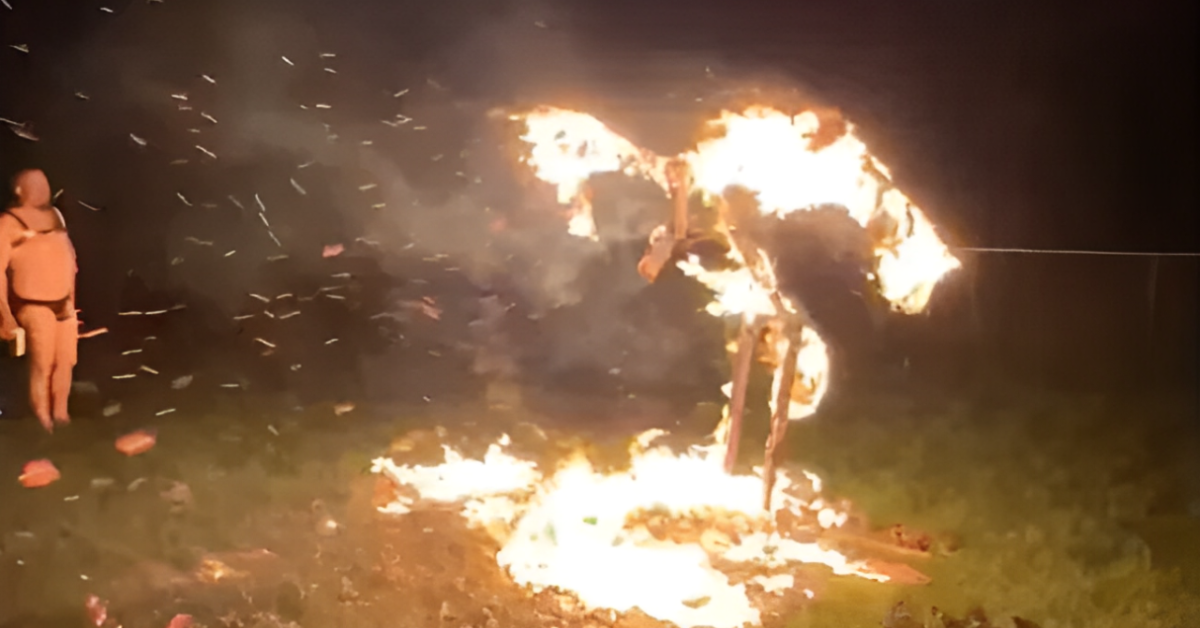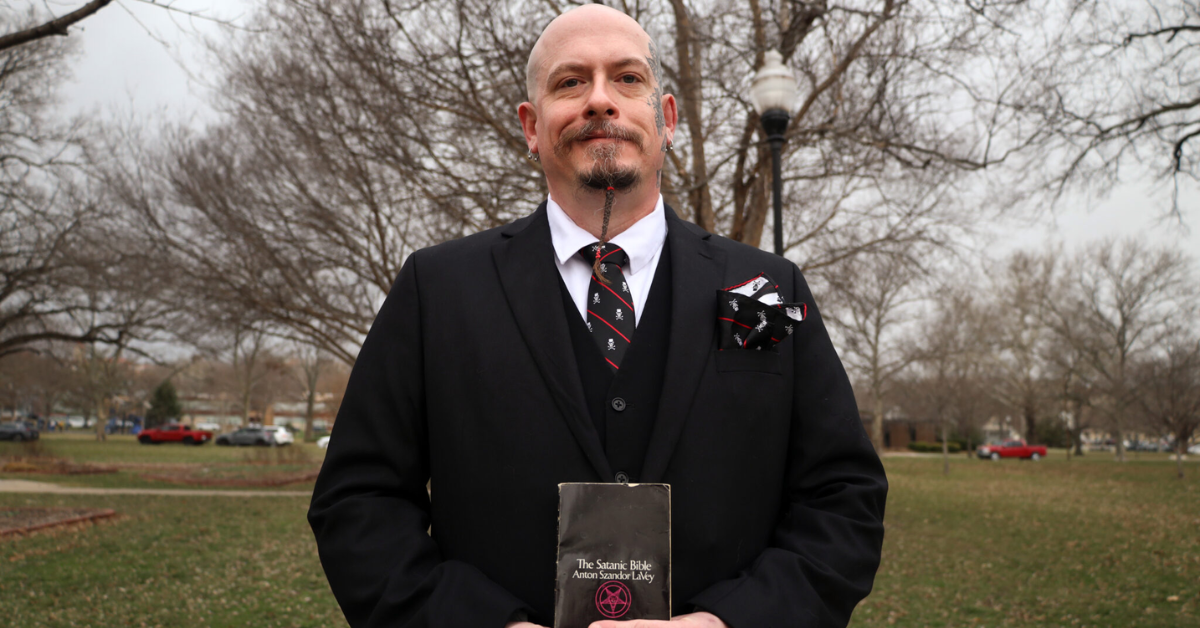Kansas City Archbishop Joseph Naumann has accused a group of Satanists of stealing sacred wine and wafers from a Catholic church to use in their upcoming “Black Mass” at the state capitol. The Archbishop filed a lawsuit on Friday against Travis Roberts and Michael Stewart, leaders of the Satanic Grotto, in the Leavenworth District Court. The lawsuit claims that the Satanists obtained the consecrated wafers and wine through “theft, fraud, deception, wrongful taking, or other forms of misappropriation.”
The consecrated wafers and wine are considered to be the body and blood of Jesus Christ in Catholic belief. The Archbishop’s lawsuit emphasizes that these sacred items should never fall into the hands of Satanists except by malicious intent.
However, Stewart, one of the Satanic Grotto leaders, denied any wrongdoing. He explained that the items in question didn’t come from a church but were purchased online through a source he referred to as “Pope Amazon,” likely meaning they were bought from an online retailer.
Stewart dismissed the outrage over the group’s plans, claiming that their Black Mass ceremony, scheduled for March 28, would simply involve symbolic acts like tearing a book, breaking a cross, crunching a cracker, and drinking wine. He stated that the ceremony was a “cathartic expression of sorrow, rage, and healing.”
Despite the Satanists’ explanation, the controversy surrounding the Black Mass has sparked heated debates among Kansas lawmakers. Initially, the ceremony was planned to be held in the Statehouse rotunda. However, after much discussion, the event was moved outside the state capitol building. Governor Laura Kelly defended her decision to allow the ceremony on the grounds of protecting free speech rights, but she criticized the group’s actions as “insulting” and “denigrating.”

Governor Kelly emphasized that while she found the event offensive, her duty as a governor was to uphold the First Amendment rights of all citizens, including those with controversial or offensive viewpoints. The Satanists’ plans have been met with strong opposition, but the legal debate centres on whether the event falls under the protection of free speech.
It is important to note that Satanists, contrary to popular belief, do not worship the devil. as depicted in religious texts. Despite the Satanists’ beliefs, Archbishop Naumann argued that their Black Mass was intended to desecrate and corrupt the sacred rituals of the Catholic Church, causing harm to Catholics worldwide.
Some local lawmakers, however, have dismissed the group’s actions as nothing more than an attempt to attract attention. Rep. Silas Miller, a Democrat from Wichita, pointed out that the Satanists’ actions were designed to get a reaction, and unfortunately, they succeeded.

For Stewart and his group, the controversy surrounding their Black Mass is not just about making noise—it’s a serious matter. Stewart told the Kansas City Star that he was ready to face the consequences of their actions, including the possibility of going to jail. “I’m wearing clean underwear and everything. We’re all in on this,” Stewart said, signalling his commitment to the event.
As the date for the Black Mass approaches, tensions continue to rise in Kansas. The legal, religious, and political debates surrounding the event show how deeply divided the state is on the issue. On one hand, some view the Satanic ritual as an expression of free speech that should be protected. On the other hand, some see it as an attack on the sacred traditions of the Catholic faith.
The controversy surrounding the Black Mass and the accusations of theft and desecration have sparked a broader conversation about freedom of expression, the limits of that freedom, and the role of religion in public life. As the debate continues, it is clear that this event will not only have lasting legal and political implications but also raise important questions about individuals’ rights to express themselves, even when their actions are considered offensive by many.
Disclaimer: This article has been meticulously fact-checked by our team to ensure accuracy and uphold transparency. We strive to deliver trustworthy and dependable content to our readers.








